Causes of Muscle Spasms are a mystery to many people but there is an answer to most muscle spasms or cramping problems. But what sort of spasms are we talking about? Most people think of muscle spasms in the calves or thighs, causing cramp-like symptoms. But let’s think where else muscle spasms can occur in the body. But first watch this short video about the cause of blood pressure.
- Legs, specifically the calf and thigh muscles
- Stomach muscles
- Heart muscle
- Bladder muscle
- Smooth muscles of airways
- Bowels and digestive system muscles
- Face and jaw muscles
- Temporal muscles
- Back muscles
- Blood vessel smooth muscles
- Esophageal muscles
- Fingers and toe muscles
- What about…orgasms!
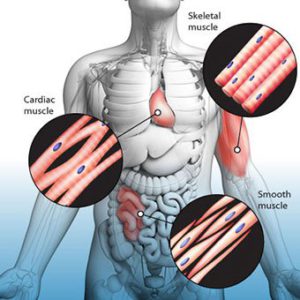 Muscle spasms everywhere!
Muscle spasms everywhere!
I’ve picked out 13 areas of the body where muscle spasms can occur. Perhaps you hadn’t thought of some of these body parts, especially the last one, but they can all point to one single deficiency. They can also cause a lot of pain and discomfort which you do not have to suffer. But even if you can’t feel them, such as spasms in the blood vessels causing blood pressure, they always put stress on the body. Some spasms are more dangerous than others, a spasm of the heart for instance!
Legs, specifically the calf and thigh muscles
If you can bear to look at your calf muscle when it is in spasm, you will notice it is very hard with the muscle very defined and in a cramped state. The reason? The muscle has tightened but in unable to relax. This indicates a lack of Mg, the relaxation mineral. With a deficiency of Mg, muscle spasms are common and the effect of a spasm can be easily seen and felt! The Ca:Mg ratio will be the likely cause of the cramps. Ca contracts muscles, Mg relaxes muscles and both minerals need to be in equilibrium to do their respective tasks efficiently.
Stomach muscles
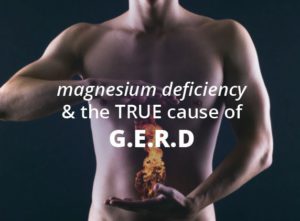 There are an abundance of muscles in the stomach so there could be a plethora of reasons stomach muscles are painful. As for stomach cramp, it could be to do with digestion. IBS is a prime candidate for the discomfort. Gastroesophageal reflux disease (GERD) is another possibility. GERD is not a disease, it is a lifestyle condition. The pharmaceutical industry has hyped it up so they can sell their ‘GERD’ drugs. Follow the money!
There are an abundance of muscles in the stomach so there could be a plethora of reasons stomach muscles are painful. As for stomach cramp, it could be to do with digestion. IBS is a prime candidate for the discomfort. Gastroesophageal reflux disease (GERD) is another possibility. GERD is not a disease, it is a lifestyle condition. The pharmaceutical industry has hyped it up so they can sell their ‘GERD’ drugs. Follow the money!
A simple lack of Mg?
What is causing the pain could be the stomach’s inability to relax muscles in the area. A lack of Mg will do just that. Again, as with leg cramps, stomach cramps could easily be simply a lack of Mg compared with Ca. Excess Ca contracts the muscles but there needs to be enough Mg to relax them.
Heart muscle
Our heart muscle is the most important organ of our bodies. Imagine what happens if the heart muscle contracts but cannot release into relaxation. With low levels of Mg this is what can occur. The famous actress Carrie Fisher possibly died of a simple Mg deficiency. What a crying shame if this was the root cause of her death. A simple mineral would have protected her cardiovascular system and she would probably still be alive and well. This is the truth about a multitude of deaths from heart disease.
Biggest cause of death in the US
According to statistics, the most common cause of death in the USA is from unexpected, sudden and unattended heart attacks. It is also estimated that 80% of the population of the US is Mg deficient. Could this be related do you think, or is it just a coincidence?
 The dangers of Mg deficiency
The dangers of Mg deficiency
This is what Dr Thomas Edward Levy, M.D., J.D says about Mg deficiency: Dr Levy is a board certified cardiologist.
“Probably the single most important property of magnesium in the body is its ability to act as a natural biological antagonist to calcium. As most adults have excess calcium throughout their bodies, it is this reciprocal relationship between magnesium and calcium that makes most people in need of regular magnesium supplementation.
In fact, the more you have of one, the less you have of the other. When calcium levels are high in the cells and the extracellular fluids, as they are in most adults, magnesium levels are corresponding low. And, because of this unique relationship, taking regular sizeable doses of supplemental magnesium works to mobilize and excrete calcium – which is one of the healthiest effects that can result to the typical body overloaded with calcium.”
How about orgasms?
If you are Mg deficient, it is likely you could have difficulty attaining an orgasm or perhaps you’re teetering on the edge but don’t quite make it, very frustrating. Those taking a magnesium supplement are happy to report that their sex life often improves with quicker and more intense orgasms. What’s more those with ED may find Mg deficiency is the cause.
 Why should this be?
Why should this be?
Mg will improve circulation and has a great calming affect. It actually enhances muscle relaxation which allows the contraction and relaxion pulses of an orgasm. With Mg deficiency, contraction may happen but the relaxation part of the process will be compromised making orgasms more difficult and less intense. In some women Mg repletion can even promote their first orgasm, with others saying they were now capable of intense multiple orgasms!
Don’t walk, run!
What a good excuse to run down to your supplier and buy a good quality Mg supplement. If you won’t take it for your heart health, insomnia, muscle cramps, arrhythmias, angina, headaches and all the other benefits, how about improving your sex life!
Two important minerals
Two important minerals have much to do with muscle spasms, although other deficiencies and imbalances of nutrients can exacerbate the condition. But if these two minerals are in equilibrium, muscle spasms will be diminished or halted altogether. These minerals are magnesium (Mg) and calcium (Ca). They are an antogonistic couple with each having an affect on the other. Excess Ca compared to Mg will have a negative affect on the body. If Ca is at a much higher level than Mg, then the body will exhibit a Mg deficiency by default along with its unpleasant side effects.
“Fight Flight” mode
If the body is under stress, it will cope with that stress by going into the “fight flight” mode. Copious amounts of Mg are used up when the body is in this state. Stress and trauma of any type such as mental, physical, environmental and emotional will massively deplete Mg levels. Consequently, those under continual stress will deplete Mg quickly. Unless, of course, they have adequate Mg levels in relation to Ca levels. If there is excess Ca in relation to Mg, then Ca will be able to flood the cells. One of Mg’s many tasks is to allow Ca into the cell when necessary and close Ca’s pathway to the cell when it is not needed. If this process is compromised and Ca stays in the cell, it will cause cell death. The image shows Ca crystals which are known to form within the mitochondria as a cell dies.
Our modern diet causes problems
However, this equal ratio is very difficult to achieve particularly as Mg in our food supply is much depleted to start with. This is due to modern agricultural practices compromising our soil with copious amounts of herbicides, pesticides, fungicides and inappropiate fertilizers. Ca, however, is abundant in our diet, even without diary.
much depleted to start with. This is due to modern agricultural practices compromising our soil with copious amounts of herbicides, pesticides, fungicides and inappropiate fertilizers. Ca, however, is abundant in our diet, even without diary.
We are awash with Ca
It is found in a plethora of foods and is also often fortified in common foodstuffs by the food producers. Food manufacturers will say that fortification of Ca is a good way of upping our Ca levels. Unfortunately, most of us have too much Ca in our body already, to the detriment of our health. It beggars belief that food manufacturers can be so ignorant about the products they produce.
 Just chalk!
Just chalk!
The Ca used to fortify foods and in Ca supplements is often of inferior quality ie. calcium carbonate (CaCO3), the same as the white cliffs of Dover! Chalk is not easily bio-available. If Ca cannot get to where it needs to be ie. into the bones with a small amount dissolved in our blood, then problems will occur. We will slowly lay down Ca deposits in our arteries, in our kidneys, gall bladders, brain and worse, our heart and cardiovascular system. This is apart from the arteries of our extremities such as arms and legs. Periferal Artery Disease (PAD) comes to mind.
That is why so many of us have so many problems to do with calcification such as:
- Bladder stones

- Testes calcifications
- Breast calcifications
- Kidney stones
- Gall stones
- Angina
- Heart valve calcifications including mitral valve prolapse
- Heel spurs
- Calcification of the rotator cuffs
- Periferal Artery Disease
- Atherosclerosis – According to the National Heart, Lung, and Blood Institute (NHLBI): “Atherosclerosis is a disease in which plaque builds up inside your arteries. Arteries are blood vessels that carry oxygen-rich blood to your heart and other parts of your body. Plaque is made up of fat, cholesterol, calcium, and other substances found in the blood.”
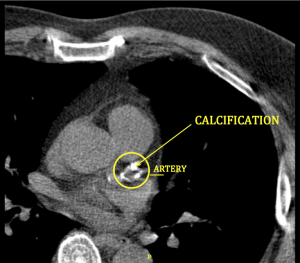 Don’t take Ca supplements
Don’t take Ca supplements
The above list are common problems with excess Ca. As you can see, too much Ca can turn into a threat to your health. In other words, Ca is toxic when taken to excess. Unfortunately many people, particularly the older generation are encouraged to supplement with Ca. This is hardly ever necessary, even if you don’t eat much diary. Most vegetables have Ca in them, as do nuts and seeds.
Dietary Ca is best
In fact, those foods that contain Mg will invariably contain Ca too. For instance, there is more Ca in Broccoli than there is Mg. Also Collard greens are high in Ca but hasn’t as much Mg in them. Almonds have an equal amount of Ca as Mg in them. Perhaps mother nature’s way of keeping these 2 minerals on an even keel!
Dr Dean’s book “The Magnesium Miracle”
Dr Carolyn Dean’s book The Magnesium Miracle is well worth a read if you want to know the ins and outs of Mg deficiency and the untold misery and suffering it can cause. All because of a simple cheap mineral.
Dr Dean has a few other muscle areas that can go into spasm:
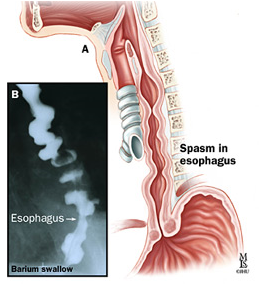 “Esophageal spasms can feel like sudden, severe chest pain that lasts from a few minutes to hours. Esophageal spasms typically occur only occasionally and might not need treatment. But sometimes the spasms are frequent and can prevent food and liquids from traveling through the esophagus.
“Esophageal spasms can feel like sudden, severe chest pain that lasts from a few minutes to hours. Esophageal spasms typically occur only occasionally and might not need treatment. But sometimes the spasms are frequent and can prevent food and liquids from traveling through the esophagus.
A coronary artery spasm is a sudden tightening of the muscles within the arteries of your heart. When this occurs, your arteries narrow and prevent blood from flowing to your heart. Coronary artery spasms are brief and temporary. However, they can potentially lead to further heart complications, such as a heart attack.
Dr. Dean cites a study of young, healthy, well-conditioned men, noting that “strenuous effort was reported to give rise to persistent magnesium deficiency and a related long-term increase in cholesterol, triglycerides, and blood sugar.” The study results suggest “the sudden death of athletes and other intensely training individuals during extreme exertion is triggered by the detrimental effects of persistent magnesium deficiency on the cardiovascular system.” (The Magnesium Miracle, Kindle page 2133)
 It makes me so mad!
It makes me so mad!
It makes me so mad and at the same time saddens me as to the ignorance of the majority of MDs. They seem to have no clue about the benefits of Mg. Or perhaps it’s the fault of the pharmaceuticals, who discourage treatment with natural nutrients, preferring to use one of their profitable drugs instead. If the population had sufficient Mg levels, hospitals would be half empty! But that’s not what the pharmaceuticals want is it! Follow the money!!
Spread the word!

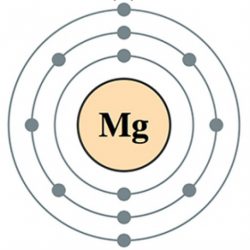
Wow, what a great article. I’ve noticed tight calves. jaw and some muscles not he head (tension?)Thank you for the reminder that stress and trauma of any type such as mental, physical, environmental and emotional will massively deplete Mg levels. Consequently, those under continual stress will deplete Mg quickly.I needed to be reminded of that!What in your experience and research are the best ways to lower coronary calcium deposits in our arteries and heart. I am in my late 40’s and already in the 80% percentile for my age (so I’m in the top 20% of calcium deposits/coronary plaque in my heart).What are the top magnesium sources from foods?Also I watched a video about boiling cut up banana’s for 10 minutes then drinking the liquid as tea to be very high in magnesium and potassium. Do you agree?Thank you, I await your comments
Hi there John and I’m please you’ve taken on board the contents of the article. As for your Ca deposits, there is now something you can do about it which is good news! Have a look at this article.
Research has shown that vitamin K2 with the aid of Mg and vitamin D3, can actively reduce Ca deposits. Hubbie and I have been taking it for quite a while now. It’s a good idea to have your vitamin D level checked before deciding on the amount to take. If you live in sunny climes, you may not need it.
Taking a magnesium supplement is a must because generally most people have much more Ca in relation to Mg and these two antagonistic minerals should be in equal ratio if possible. Mg is very depleted in our soils because of modern agricultural practices. Consequently, our crops don’t contain as much Mg as 100 years ago.
I’ve not come across the banana thing but they do contain some Mg but are known for their high potassium content. I can’t see how messing with the banana can make its mineral content higher though. Just eat it!
You’re right; muscle spasms are unusual and it can be really hard to pin down WHY you’re having them. When you say ‘a lack of Mg’ what are you referring to by Mg? I know you mention ‘relaxation mineral’ but what exact compound is it? Same for Ca? Can you take supplements that will increase the levels of these minerals in your body, and if so, do you advise doing so? Thanks for sharing!
Sorry Danny, I forgot to give the name of the mineral as apposed to its periodic table shortform. Mg is magnesium and Ca is calcium. I would definitely suggest taking a magnesium supplement because of the high deficiency known to be suffered by the majority of the US population. I don’t know about the rest of the world but the UK and Europe come in a close 2nd to the US. As for Ca, most of us have enough of it already and many of our foods are fortified with Ca by food manufacturers. That’s why so many of us suffer from calcifications in our bodies, not least our cardiovascular system.
I posted here a little while ago about the number of cramps I was getting – note: “was”.
Since your response to my post I have checked out issues to do with Magnesium deficiency, discussed it with my doctor, who to my surprise said that my research appeared to be valid, go ahead!
I have now taken Magnesium citrate for two weeks and am already feeling the benefits.
Whilst I have still had one cramp, it was no where near as severe as in the past. All round I feel so much better, it is amazing.
Hi again Steve and I’m really pleased you’re doing well with your Mg Citrate. Have you noticed any other changes? For me it stopped my twitching eyelid which was really annoying. Also my heart palpitations disappeared altogether. My sciatica diminished and is now gone, no migraines, no muscle cramps, no depression. The list is endless.
I’m sure as you go through the weeks and months, you will notice symptoms slowly diminishing. How much Mg Citrate are you taking by the way? Citrate is really good for a sluggish digestion. If you find your digestion goes the other way, you can change to Mg Chloride such as ReMag and topical applications are also another way of getting Mg into the body. It is such a small molecule that it gets through the skin easily.
How lucky you have such an up to date doctor who is open minded. Once you get your Mg sorted out, which is the most important nutrient IMHO, you can start finessing your nutrients and researching those that you may also be of benefit to you. Have a look at vitamin K2 benefits. It is really interesting and has encouraged me to start taking this little known nutrient. It is absolutely essential for clearing calcifications from arteries but needs to be taken with Mg and, if you are deficient, vitamin D3. Those living in colder climates are susceptible.
As we age, calcification becomes a real problem, but it’s not got to be that way. Have a look at this article about coronary calcium scans. It’s quite scary what could be going on inside the body. But we can do something about it if we get educated. You can then educate your doctor!
Good luck with your new way of life Steve and please let me know how you’re getting on.
This explains a lot. I never hear about Mg deficiency, only Ca, so did not know how important it is to keep them in balance. In general I am healthy but have Type 2 diabetes. After reading your article I checked on a couple of other sites and found that for males 51+ years of age the Recommended Daily Allowance (RDA) of Mg is 420mg. And for diabetics it is higher because diabetes causes higher Mg loss in the body. Wow, that’s a lot of Magnesium!
The good news is that 3.5 ounces of Almonds contain 270 mg of Mg. Other nuts and seeds are also high in Mg and I love nuts and seeds so from now on my diet is going to include more.
Thanks for the very interesting and informative article.
Ed
Hi Ed and thanks for writing your valuable comment. The eminent Diabetes researcher Dr Jerry Nadler of the Eastern Virginia Medical School who was given the ‘top scientist’ award for 2016 says “the link between diabetes mellitus and magnesium deficiency is well known.” and “diabetes is a magnesium deficiency state”. It’s a pity that the general medical profession seem to be devoid of this information, to the detriment of diabetics!
You may think the RDA is high at 420mg per day but many experts say this is far too low, partially because of the high amount of calcium we ingest. Also, as far as Mg in our food is concerned like nuts for instance, Ca is often in equal amounts. Almonds have 264mg of Ca to Mg’s 270mg. This is the problem. Our diet is too rich in Ca purely because the Mg content in our food is so low. You can blame our agricultural practices for that. It is known that in the early1900s our relatives were consuming around 500mg of Mg per day just from food.
Nuts and seeds are great, keep eating them but try and watch your Ca levels from foods such as dairy. Don’t take Ca supplements and lay off the OTC products such as antacids like “Tums”, they are full of chalk ie. Ca Carbonate to the tune of 3500mg for a days allowance.
By the way, if you want to rid yourself of Type 2 diabetes have a look at Reversing Diabetes Naturally – and it costs nothing! It’s rather radical but the book The Diabetes Code by Dr Jason Fung is well worth a read. If you don’t want to buy it, go onto youtube and you will find quite a few videos of Dr Fung explaining the process.
PS. Hubby and I are doing this method, we haven’t got diabetes but we wanted to try it out to see what would happen. We both feel great! More energy, clarity of mind and cravings have disappeared. We’re hooked on this way of eating and don’t intend to stop anytime soon! As a bonus, we’re both losing weight!
Awe thanks. The post was indeed worth it. I wonder why so many people could have this deficiency in the USA. I’m 34 years old now, but it’s also true that my diet has greatly changed. While I was living the office lifestyle, I barely had time to prepare my own meals. But now that I’m running my own business, and don’t even have the time to get out of my home, everything I eat sole depends on me now, and I’ve been encouraged to avoid processed meals at all cost, something my life depended on in the past.
Now instead of sugar, I take honey. I’ve integrated oranges in my meals and any other fruits I can lay my hands on and developed so much passion for vegetables. Meat is almost taken off my diet, but I can have it once in 2 weeks. Fish, on the other hand, has become my favorites. I do take a lot of natural kinds of stuff now, and I guess that’s why those cramps suddenly vanished. Not to forget the 1 liter of water I take first thing every morning. Perhaps all of that is linked, as my diet has completely changed. It’s certain that I was Mg deficient, and I hope it never returns.
Great to hear that you’re off the processed foods. It is difficult for some lower income families to completely move to whole foods. Processed foods are so much cheaper and convenient, especially when you have a growing family.
Honey is far superior to sugar, in fact I class sugar as a toxin, but still I succumb to the odd ice-cream treat or milk chocolate now and then. As long as your diet is generally healthy and home cooked, you will be much healthier. If you can afford it, buy organic produce, especially vegetables. This will hopefully ensure that Roundup hasn’t been used as a dessicant prior to vegetable harvesting. This is becoming a real problem. Roundup has the toxin glyphosate in it and many people have been tested, including nursing mothers, to have glyphosate in their bodies. Glyphosate and cancer – Monsanto found guilty! is worth reading.
Fish is a great food but again, check where your fish is being caught. Mostly, fish is farmed in spurious places like Thailand, Vietnam and India. Some farmed fish is better than others but it is generally a better idea to pay more for fish caught in the wild. The only salmon which is definitely wild caught will be Sockeye. That’s why it’s so expensive. It’s really hard work to eat healthily, but I suspect you will be less deficient in Mg than the general population, 80% of which is estimated to be Mg deficient.
Awe thanks. The post was indeed worth it. I wonder why so many people could have this deficiency in the USA. I’m 34 years old now, but it’s also true that my diet has greatly changed. While I was living the office lifestyle, I barely had time to prepare my own meals. But now that I’m running my own business, and don’t even have the time to get out of my home, everything I eat sole depends on me now, and I’ve been encouraged to avoid processed meals at all cost, something my life depended on in the past.
Now instead of sugar, I take honey. I’ve integrated oranges in my meals and any other fruits I can lay my hands on and developed so much passion for vegetables. Meat is almost taken off my diet, but I can have it once in 2 weeks. Fish, on the other hand, has become my favorites.
I do take a lot of natural kinds of stuff now, and I guess that’s why those cramps suddenly vanished. Not to forget the 1 liter of water I take first thing every morning. Perhaps all of that is linked, as my diet has completely changed. It’s certain that I was Mg deficient, and I hope it never returns.
Hi and thanks for this article. I believe that so many people don’t realise fully just what we put into our bodies and what we might be lacking. I can see you really know your stuff when you are explaining things, and the pictures you include a very helpful too. Do you feel that there are any specific food groups to include or avoid in order to help manage this problem? Thanks, Kenny
Hi there Kenny and nice to hear from you. The thing is with Mg is that it is in many of our vegetables, nuts etc., but not so much in our dairy produce. If you look at its antagonistic partner Calcium, this is also in our vegetables and nuts etc., but also in our milk products to a large degree. What’s more, the food manufacturers, in their wisdom, have fortified much of our foods with Ca. This is having a detrimental affect on our Ca intake which is vastly higher than our Mg intake. This equates to a Mg deficiency by default because Mg and Ca should be in equal measures. Added to this, there is the problem of depleted nutrients in our modern day soils, due in most part to our agricultural practices, stripping the soils of nutrients with the chemical additives such as Roundup. Mg is affected greatly by this practice whereas Ca is more resilient.
All in all we are ingesting too much Ca, much of which is just chalk Calcium carbonate, but we’re not getting enough of Mg. Hence there is a serious imbalance. Without Mg, Ca will start to kill our cells. Mg is necessary to control the entry of Ca into our cells. (Take a look at the little video at the top right of this page.) If Ca is allowed into the cells and is not ushered out when its job is done, it will stay there and in the end kill the cell. This is the start of cell degeneration with respect to too little Mg.
Back to your question. Unfortunately, the only way we can counteract this imbalance is to take a good quality Mg supplement. Do avoid Mg aspartate and Mg oxide. Do your own research. Being healthy to avoid hospitals and doctors is a proactive activity. To be in control of your health and know as much as your doctor does about your body and your conditions, you must research and educate yourself. You can then make informed decisions about your treatment and nutritional needs. Meanwhile, try and keep Ca and Mg in equal ratio. Take a Mg supplement and watch your Ca intake. Don’t take Ca supplements, that includes OTC products such as antacids. Tums are a prime example!
I had no idea that magnesium deficiency was the cause of so many different problems. It is sad to think of all the people that may have died from heart attacks because of a lack of magnesium. Absolutely tragic.
I seem to spend a lot of time pretty stressed out, so I’m glad I found out that stress causes the body to use up a lot of magnesium. My doctor recommended magnesium to me a few weeks ago but I haven’t started taking it yet. After reading your article, I think I will start taking the supplement as soon as possible.
Hi Mariah and it’s good to hear that your doctor was happy to advise you about magnesium. Many MDs haven’t got a clue about nutrients. I wonder if your MD is an ND too, a naturopathic doctor as well as a medical doctor. In my mind these are the best doctors because they will look at all avenues and use the best treatment for your specific condition.
What is Magnesium Chloride? is an in depth look at the various Mg salts out there. This may help you choose the right supplement for your body. Just avoid Mg aspartate and Mg oxide.
I couldn’t believe what I was hearing when I listened to the video on your site!
I have been diagnosed with Fibromyalgia and suffer severe cramps all over my body, ribs, thighs, calves, back you name it – everywhere!
It would also be foolish for me to believe the word of one or two doctors without verifying the comments. However, within one post there is such a detailed explanation as to the benefits of Magnesium and the battle between Magnesium and Calcium in the body, there is sufficient information for me to go and check things out.
In addition, stress is mentioned as a great Magnesium user. I have suffered with stress for quite a number of years for various reasons.
Your information could be the start of a radical change in my life, one I am very excited to pursue with vigour. I will keep you posted with the results of my research.
Hi Steve, I’m sorry to hear of your painful condition. Cramps anywhere in the body are debilitating and what’s more, will further deplete your Mg levels. Many patients end up in a wheelchair because of this condition. Don’t be one of the statistics.
Researching for yourself is the best way of finding out the truth and I’m gratified you’re doing just that. One thing to keep in mind though is that the majority of MDs know very little about Mg and other vital nutrients. They are not taught it in medical school. Their MO is to treat a symptom with a drug, which often has side effects that can sometimes bring on new symptoms. What’s more, protocol takes over in allopathic medicine which does not include recommending nutrients. Drugs are more lucrative for the pharmaceuticals and they will encourage their use for the sake of profits. No matter that a natural nutrient, which the body may be deplete in, could be a better treatment.
If a medic does decide to test you for a Mg deficiency, they will use the totally outdated and useless Serum Mg test. This test only looks at less than 1% of the body’s total Mg. The body works hard to keep this level in the serum stable and will pull Mg from elsewhere to keep it so. This is to protect the heart, the left ventricle of which needs the most Mg. Check this article out about Mg testing – Magnesium Deficiency Test
I’m very interested in Fibromyalgia, a condition which seems to have progressed from fibrositis. Being a questioning kind of person, I often wonder if the pharmaceutical industry bring out new lucrative drugs for a condition that can be cured with the correct nutritional balance. All our ills start at the cellular level. With our 37.2 trillion cells all needing Mg, to me it just makes sense that a depletion in this vital nutrient is bound to cause havoc throughout the body. Please let me know how you get on. Meanwhile, taking a good quality Mg supplement can do no harm and I’m sure will give you some relief whilst doing your research!
Hahahahahahahaha
Glad it made you smile Nsoh!
Hahahahahahahaha ?????I enjoyed the end of that video. We don’t have high blood pressure because of a Voodoo curse!!! This is really hilarious!!!
But that short video was really informative. That means I have to make sure I include magnesium and Calcium in my diets. Really interesting.
Ah. I used to have a lot of sudden cramps at my feet and it used to happen frequently. My one foot will suddenly just start freezing in excruciating pains as if the muscles in them were intertwining together. Urrrh. But thank goodness those experiences gradually faded away, and I had completely forgotten I had those problems.
Thanks for this informative post, and especially what to take to avoid them.
Stunning Bell! What a great name! Thanks for reading the post and I’m gratifed you have found some worth in it. Those cramps are a good indication that you are Mg deficient. After all, it is indicated that 80% of the population of the US could have this deficiency. I don’t know how old you are but even if those cramps have subsided, Mg it is such an essential nutrient, regular supplementation with a good quality Mg salt is an easy way to keep yourself fit at you get older. It’s also interesting that many youngsters are Mg deficient which can cause all kinds of problems. ADHD, seizures, ADD, tics to name but a few. Do you have any of these symptoms?
I always had spasm on my legs muscle (calf ). It happens quite often when I was trying to jog. Does short amount of warming up session affect too?. I am 23 years old, sports person which i rely often on my legs. In fact I do eat broccoli, just not that often. Do you have any other suggestion on how to reduce spasm happening when jogging for longer distance?.
Hi Rocio and thanks for your comment. Warming up properly is always a good idea but the fact you have muscle spasms does indicate a Mg deficiency. Do you take water when jogging? You must keep hydrated and I don’t drink those so called health drinks either, they will just exacerbate the problem. Take water with some Mg Chloride solution in it to keep from losing Mg whilst working out or doing exercise. Check out this article Magnesium and Working Out. Something all athletes should be aware of.
Thank you for the explanation about muscle spasms. I think this is a very good explanation about my leg spasm. My leg often feel easily cramped after taking a long stroll. I should consume more food with Mg. Oh yes, I am a vegetarian. Do you think vegetarian lifestyle affect the muscle spasms too?
Hi Alblue, the fact that you’re a vegetarian is OK because Mg is in many vegetables. This article Foods With High Magnesium will give some foods higher in this mineral. The real problem is modern farming practices which has depleted the soils of many nutrients, Mg suffering severely. Herbicides, fungicides, insecticides and nutrient deficient fertilisers has stripped our once fertile lands.
Mg supplementation is the only way to keep your body replete. As calcium is in abundance in our diet, the balance between Mg and Ca is nearly always biased massively towards Ca. This is a recipe for ill health, the most serious being heart disease through calcification, not to mention kidney stones, gall stones, heel spurs, breast and testes calcifications, the list is endless.
Wow ! This is a really helpful site. I just stumbled upon it by chance as I was looking for something for my Wife`s “Restless Legs” I will go through this site thoroughly and find out what is going on with this and other items. There are a few things on here that relate directly to me, so it is a great source of info. Bookmarked already ! thanks again Richard
Hi Richie, pleased you’ve found the site of interest to you. By the way, your wife WILL be Mg deficient if she has the dreaded RLS (restless legs syndrome). It’s a prime symptom of this deficiency. Check the link on Stunning Bells comment answer and see if you have any other symptoms. Also have a look at the video on this article of Dr Levy being interviewed about Magnesium. Out of all the supplements out there, if you just wanted to take one, choose Magnesium! It will keep you in good stead for the rest of your life.
I work in an office all day and sometimes I have this muscle spasms. I dont think it is a serious thing. I Stretch and massage. Stretch the cramped muscle and gently rub it to help it relax. For a calf cramp, put my weight on my cramped leg and bend my knee slightly.
Hi Kit, but why are you getting muscle spasms in the first place? Your body is telling you there’s something amiss. We always treat the symptoms and never look for the root of the problem. Your problem is a Mg deficiency, try taking some good quality Mg and see what happens. What is Magnesium Chloride? This will give you info on which Mg salt to choose.
Hi
This post has great information and i have spasms in my back and i would never of thought it was a lack of magnesium.
This has really made me look at my health , could this be a cause for restless legs aswell ? as i suffer in the evenings with this problem.
I have also suffered with cramp and not really taken much notice, after reading this i will deffo look into it.
Thanks:)
Your back pain will definitely benefit from Mg. Restless legs syndrome is also a symptom of Mg deficiency, as is a plethora of other symptoms and conditions. Our 37.2 trillion cells are crying out for it. Diseases always start at the cellular level and Mg is necessary for 6 of the 8 stages of the Krebs Cycle. This process produces our energy within the the Mitochondria. Without it there’s no life and no movement. If you do not keep your Mg levels up, you will slowly but surely succumb.
The three symptoms you have are all typical of a Mg deficiency, so please do something about it now. Do take a good quality supplement. Magnesium Chloride is 100% bioavailable and is the Mg salt that I recommend. There are many others for you to choose from but avoid Mg aspartate and Mg oxide.
I’m sorry I did not reply earlier to your questions. For some reason, I only received your comment today.